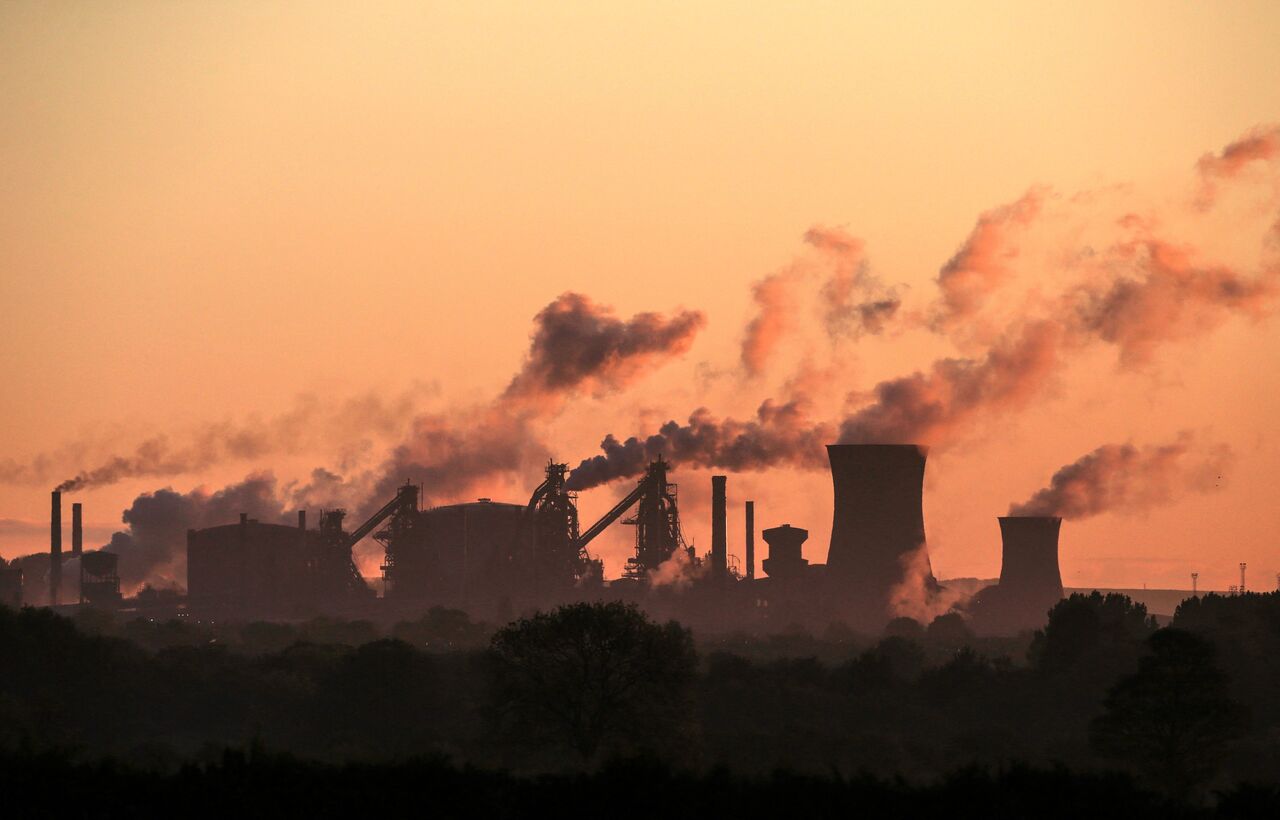Reduce emissions faster to safeguard human health, healthcare professionals urge in open letter
Sign up now: Get ST's newsletters delivered to your inbox

The open letter aims to galvanise greater climate action from nations before they gather in Glasgow for the UN climate change conference.
PHOTO: AFP
SINGAPORE - Almost 4,000 individuals and organisations from the global healthcare sector have signed a letter urging governments to safeguard the health of their people by taking bolder action to reduce their carbon emissions.
Signatories to the Healthy Climate Prescription letter include two Singapore organisations - the Singapore Paediatric Association and Third Spacing, a podcast run by local healthcare students.
The open letter aims to galvanise greater climate action from nations before they gather in Glasgow in Scotland for the United Nations' climate change conference, which kicks off on Oct 31.
The climate meet aims to finalise details that will help nations take steps to implement the Paris Agreement inked in 2015.
Under the agreement, nations aim to limit global warming to well below 2 deg C, preferably to 1.5 deg C, compared with pre-industrial levels. This threshold will help the world avoid the harshest impacts of climate change.
"The climate crisis is the single biggest health threat facing humanity," the letter said.
"As health professionals and health workers, we recognise our ethical obligation to speak out about this rapidly growing crisis that could be far more catastrophic and enduring than the Covid-19 pandemic."
Hospitals, clinics and communities around the world have already been responding to the health harms caused by climate change, the signatories said.
People are suffering from air pollution from forest fires, harmful agricultural burning practices and the burning of fossil fuels - the key driver of climate change, they added.
Changes in weather patterns are also causing an increase in food-borne, water-borne and vector-borne diseases. Studies have shown, for instance, that the incidence of dengue fever will increase in a warming world.
Increasingly frequent extreme weather events, including heatwaves, storms and floods, are also taking the lives of thousands, disrupting the lives of millions more and impacting healthcare facilities.
Said the signatories: "This year alone, major climate change-related health disasters occurred in China, India, Pakistan, Vietnam, Canada, Germany, Belgium and many other nations."
Climate change can also disrupt food production and lead to hunger and malnutrition, while rising sea levels can destroy homes and livelihoods that are key to supporting human health.
The healthcare professionals added: "Climate change impacts are taking a serious toll on peoples' mental health, causing post-traumatic stress disorder and anxiety, and worsening existing conditions."
The open letter comes alongside a new report by the World Health Organisation (WHO) outlining the intimate links between the environment and human health.
The WHO COP26 Special Report On Climate Change And Health establishes the inseparable links between climate and health, and highlights 10 priorities for safeguarding the health of people and the planet.
They include: protecting and restoring nature, financing the green recovery, creating energy systems that protect and improve climate and health, and promoting healthy, sustainable and resilient food systems, among other things.
The 82-page WHO report also highlights action points that governments can take to achieve these goals, such as by phasing out fossil fuels and internal combustion engines in vehicles, investing in clean energy, and committing to protect at least 30 per cent of the land and sea by 2030.
The Covid-19 pandemic has illustrated the links between man and nature, said the report. The outbreak of the coronavirus disease is likely to have animal origins.
The WHO said the recommendations were developed in consultation with more than 150 organisations and 400 experts and health professionals.
"The Covid-19 pandemic has shone a light on the intimate and delicate links between humans, animals and our environment," said Dr Tedros Adhanom Ghebreyesus, director-general of the WHO.
"The same unsustainable choices that are killing our planet are killing people. WHO calls on all countries to commit to decisive action at COP26 to limit global warming to 1.5 deg C - not just because it's the right thing to do, but because it's in our own interests."


